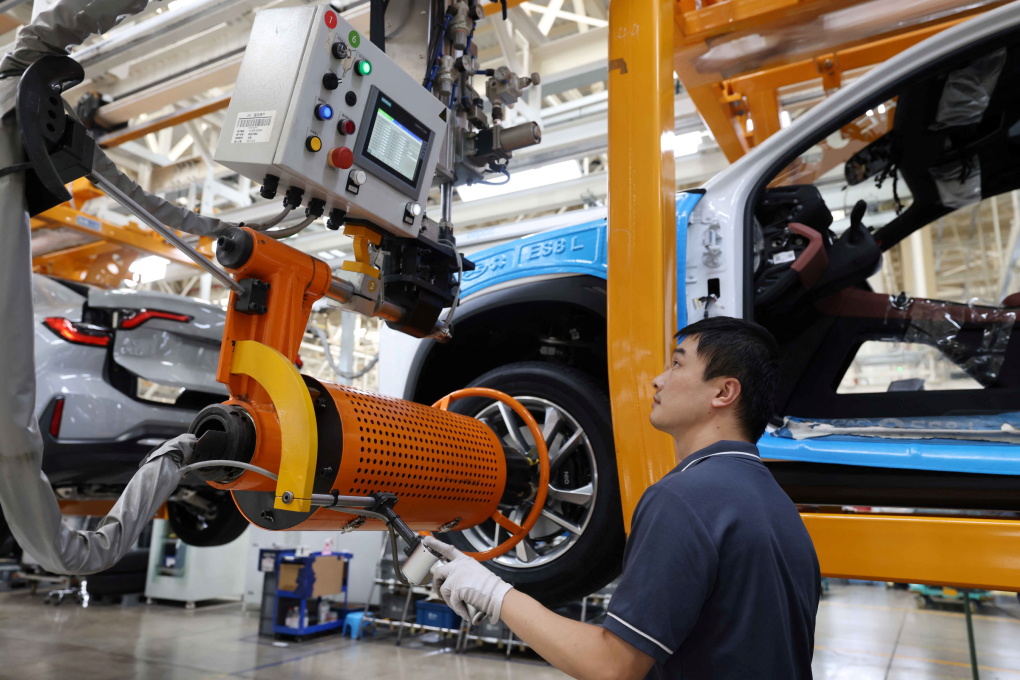China's Economic Stimulus Measures for 2025
China Rolls Out Stimulus Measures to Boost Slowing Economy, Beijing – Facing a slowing economy and anticipating potential trade tensions with the incoming US administration, Beijing is implementing a series of measures to encourage consumer and business spending. These actions also aim to address currency devaluation and stock market declines.
China Rolls Out Stimulus Measures to Boost Slowing Economy, Beijing – Facing a slowing economy and anticipating potential trade tensions with the incoming US administration, Beijing is implementing a series of measures to encourage consumer and business spending. These actions also aim to address currency devaluation and stock market declines.
Consumer Subsidies
China plans to expand programs that offer rebates for replacing old vehicles and appliances with newer, energy-efficient models. The National Development and Reform Commission (NDRC) announced an increase in the types of appliances eligible for government subsidies from 8 to 12 this year.
Microwaves, water purifiers, dishwashers, rice cookers, and a range of passenger vehicles have been added to the trade-in program. Consumers can now receive subsidies for replacing up to three air conditioners instead of just one. Subsidies of up to 500 yuan (approximately 70 USD) are available for mobile phone purchases.
The Ministry of Commerce stated that expanding the program will stimulate spending and boost domestic demand. The Ministry of Finance has allocated 81 billion yuan (11 billion USD) for implementation. Additionally, millions of civil servants across the country received a pay raise this month, injecting an estimated 12-20 billion USD into the economy.
Last year, the program, launched in June, facilitated the replacement of 6.5 million fossil fuel-powered vehicles with electric and hybrid vehicles, driving double-digit growth in appliance sales in the final months of the year. Overall, the trade-in program boosted car sales by 920 billion yuan (125 billion USD) and appliance sales by 240 billion yuan (32.7 billion USD).
This year, Beijing is also expanding a program to support equipment upgrades in the information technology and agriculture sectors, focusing on advanced, intelligent, and green technologies.
( Workers at the Nio electric vehicle factory in Anhui province on August 18, 2022. Photo: Reuters )
Increased Investment
So far, China has refrained from launching a large-scale economic stimulus package, opting for a targeted and gradual approach.
However, at the Central Economic Work Conference in mid-December, officials decided to increase the budget deficit to approximately 4% of GDP, issue more bonds, and ease monetary policy to maintain stable economic growth, projected at 5%.
Zhao Chenxin, head of the NDRC, indicated that the government plans to announce the issuance of a larger volume of long-term treasury bonds to finance expenditures.
According to Reuters sources, authorities intend to issue a record 3 trillion yuan (409.19 billion USD) in special treasury bonds this year. An official announcement is expected at the annual parliamentary session in early March.
Protecting the Currency
Last weekend, the People's Bank of China (PBOC) decided to stabilize the value of the yuan, which has weakened against the US dollar and other currencies, putting pressure on financial markets.
As of January 8th, the yuan was trading at 7.3278 per USD, compared to nearly 7 yuan per USD in early October. A weaker yuan can boost the competitiveness of Chinese exports but also risks discontent from trading partners.
Furthermore, the country's stock market has declined after a brief recovery in late September. The Shanghai Composite Index, after rising to nearly 3,700, has fallen to just over 3,200 points. The PBOC has stated its intention to stabilize financial markets.
Rectifying Inspection Activities
On January 7th, Vice Minister of Justice Hu Weilie urged localities to avoid conducting "arbitrary inspections" that disrupt normal business operations.
Xinhua reported that new regulations aim to prevent abuse of power, unjustified asset seizures, and unreasonable production suspensions. This is part of a campaign to improve the business environment, according to Premier Li Qiang. The move follows complaints about dozens of business leaders being detained or having assets seized by local authorities.
Boosting Confidence in the Economy
China is restricting dissenting voices on the economic situation, according to AP. Beijing has blocked some social media accounts of economists who criticize government policies. Xinhua recently emphasized the importance of ensuring "correct public opinion" to create a "mainstream public view of unity and progress."
Late last month, the World Bank raised its 2025 growth forecast for China from 4.1% to 4.5%. However, it noted that slowing household income growth and the negative impact of declining real estate values will affect consumption this year.
Mara Warwick, World Bank Country Director for China, said addressing challenges in the real estate sector, strengthening the social safety net, and improving local government finances are essential for a sustainable recovery. "It is important to balance support for short-term growth with long-term structural reforms," she said.
Source: https://vnexpress.net
Phien An (according to AP, Reuters, Xinhua)



main.comment_read_more